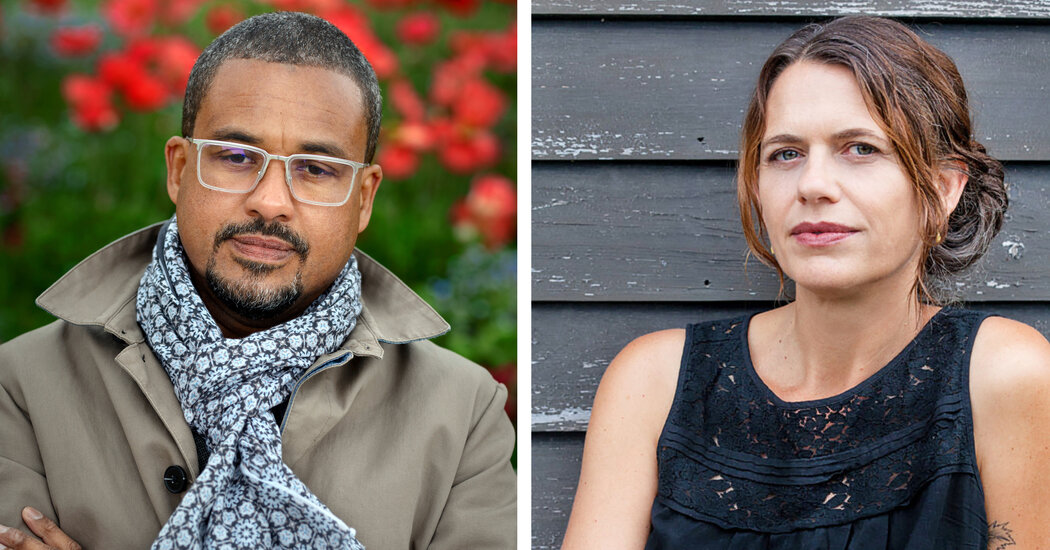
LONDON — “At Night All Blood Is Black,” a short novel about a Senegalese soldier’s descent into madness while fighting for France in World War I, was named on Wednesday as the winner of the International Booker Prize, the prestigious award for fiction translated into English.
David Diop, the book’s author, shares the prize of 50,000 pounds, about $71,000, with Anna Moschovakis, who translated the work from its original French.
Diop’s main character kills German soldiers, then cuts off their hands, partly to avenge a friend’s death, and Lucy Hughes-Hallett, the chair of the judging panel, said in an online news conference that the novel was both “frightening” and “appalling” in its violence.
But she said that bloodiness didn’t lessen the novel’s importance. “The whole of tragedy depends on the dichotomy between the awfulness of what you’re being told, and the beauty of the way it’s being expressed,” she said.
“You feel like you’re being hypnotized,” Hughes-Hallett added of the book. “It’s an extraordinary novel.”
The International Booker Prize is awarded each year to the best book translated into English and published in Britain or Ireland. It is separate from, but administered by the same foundation as, the better-known Booker Prize for fiction written in English, and has the same prize money.
Past winners have included “The Discomfort of Evening” by Marieke Lucas Rijneveld of the Netherlands, “The Vegetarian” by the Korean writer Han Kang, and “Flights” by Olga Tokarczuk, the Polish author who went on to win the Nobel Prize in Literature.
“At Night All Blood Is Black” won by a majority decision, Hughes-Hallett said, beating five other shortlisted titles including “In Memory of Memory,” by Maria Stepanova, in which the Russian writer digs through her dead aunt’s possessions, before using them to reconstruct her family history.
Diop, 55, was born in Paris to a French mother and Senegalese father, but spent most of his childhood in Dakar. In Senegal, men who fought for France regularly took part in national parades, Diop recalled last month in an interview with The New York Times.
But in France, those soldiers were rarely discussed. “It felt unsatisfying, because in Senegal, we knew what they’d done for France,” Diop said. “It made me want to write a fictional letter from a Senegalese soldier,” he added.
Diop can expect a sales boost thanks to the prize, although the novel has already been a hit in France, selling over 170,000 copies and winning several awards, including the Goncourt des Lycéens, voted for by high school students.
It has also received several rave reviews in Britain and the United States, where it was published by Pushkin Press and Farrar, Straus & Giroux, respectively. “David Diop has created a work that, although less than 150 pages in length, is powerfully original,” wrote Nick Rennison, in the Times of London. He is “a great new African writer,” wrote Chigozie Obioma, reviewing the book for The New York Times. “He takes his character into the depths of hell and lets him thrive there,” Obioma added.
The book is “so incantatory and visceral, I don’t think I’ll ever forget it,” the author Ali Smith told The Guardian newspaper.
In the interview with The Times, Diop distanced his writing from activism, but Hughes-Hallett said the book would make readers think about race and colonialism.
“What Diop reminds us of, very interestingly and subtly, is that colonialism isn’t just about another country swooping in and taking over,” she said. “It’s also about colonizing those people’s minds so that very young men might feel a huge amount of loyalty to France — a country they’ve never visited, and whose language they didn’t speak.”







